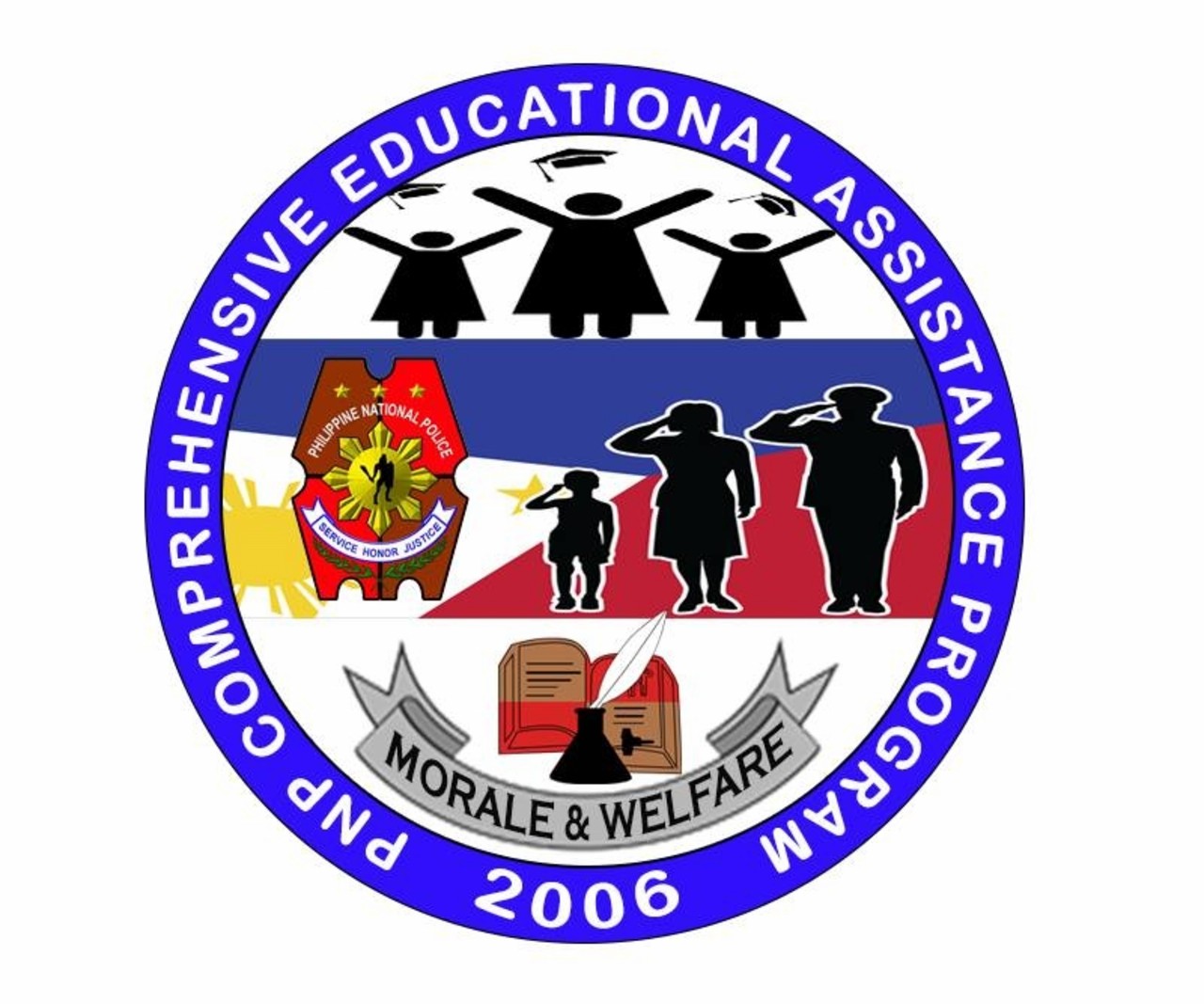The PNP Comprehensive Educational Assistance Program (PCEAP) is designed to support the educational needs of the declared legal beneficiaries of Philippine National Police personnel. Whether they are dependents of police officers who excel academically, were Killed in Police Operation (KIPO), Wounded in Police Operation (WIPO), permanently disabled, or recognized for exemplary service, this program provides direct financial help for their schooling with the help of funding from donors, benefactors, and partner institutions.
The program was designed to not only uplift the morale of PNP personnel by making quality education more accessible to their families, but to also show the government’s support to the families of our law enforcers—especially those who have made extraordinary sacrifices. Whether through REAP, DEAP, or SEAP, learning about whether you are a qualified beneficiary can help you access this financial support that was meant to honor the service and dedication of your family members in uniform.
Program Overview

The PCEAP is a donor-driven initiative that offers educational assistance in three main forms:
- Reward Educational Assistance Program (REAP): One-time financial grant for dependents of PNP personnel who have received special awards, promotions, or commendations.
- Dependents Educational Assistance Program (DEAP): Annual financial support for dependents of active-duty PNP personnel who have achieved academic excellence.
- Special Educational Assistance Program (SEAP): Continuous financial support for dependents of PNP personnel killed, wounded, or permanently disabled in the line of duty.
The program’s goal is to promote the economic, social, and educational welfare of PNP personnel and their declared beneficiaries while ensuring that assistance is properly managed and distributed according to established guidelines.
Purpose and Objectives
The PCEAP aims to:
- Support deserving dependents of qualified PNP personnel in their educational journey.
- Sustain the morale of active-duty police officers by extending tangible benefits to their families.
- Collaborate with donors, institutions, and socially responsible organizations for sustainable funding.
- Provide clear policies and procedures for fair distribution of educational aid.
Types of Grants and Benefits Offered
As mentioned earlier, this program covers three different types of grants that offer different benefits to the targeted beneficiaries. Here’s a list of benefits offered under each grant type:
1. Reward Educational Assistance Program (REAP)
This is a one-time grant of ₱30,000 awarded to dependents of PNP personnel who have been recognized with medals, special promotions, or commendations such as the Medalya ng Kabayanihan or Medalya ng Katapangan. Unlike DEAP, it is not based on academic performance but on the service recognition of the police officer.
- Who Can Apply:
- Wounded in Police Operation awardees (not permanently incapacitated)
- Recipients of special promotions
- Awardees of Medalya ng Kabayanihan and Medalya ng Katapangan
- Individual awardees during the National Police Service Anniversary
- Benefit Amount: ₱30,000 (one-time grant)
- Funding Source: PNP Scholarship Foundation Fund, PSMBFI remittances, PNP Provident Fund, and partner agencies.
2. Dependents Educational Assistance Program (DEAP)
It is an annual grant given to the declared legal dependents of active-duty PNP personnel who have received academic excellence awards. It provides continuing financial support per school year—ranging from ₱15,000 for elementary up to ₱30,000 for college—with a maximum of five years or the prescribed course duration.
- Who Can Apply:
- Dependents of active PNP personnel awarded with academic excellence.
- Annual Support:
- College – ₱30,000/year
- Senior High School – ₱20,000/year
- Junior High School – ₱20,000/year
- Elementary – ₱15,000/year
- Maximum Duration: 5 years for college or course duration, whichever is shorter.
- Funding Source: Same as REAP.
3. Special Educational Assistance Program (SEAP)
This program was designed to prioritize the dependents of PNP personnel who were Killed in Police Operation (KIPO), Wounded in Police Operation (WIPO), or permanently disabled in the line of duty. Unlike REAP or DEAP, its funding comes from donations and benefactors, and its coverage depends on terms set in agreements with donor organizations or partner schools.
- Who Can Apply:
- Dependents of PNP personnel killed in police operation (KIPO)
- Dependents of PNP personnel wounded or permanently disabled
- Other beneficiaries as specified in donor agreements
- Funding Source: Donations, sponsorships, tuition discounts from partner schools.
Who Can Benefit from the PCEAP?
Priority Recipients Include:
- Dependents of PNP personnel Killed in Police Operation (KIPO).
- Dependents of PNP personnel Wounded in Police Operation (WIPO) or with Total Permanent Physical Disability (TPPD).
- Dependents of active PNP personnel with outstanding academic performance.
- Dependents of PNP personnel recognized for exemplary service or awarded medals such as Medalya ng Kabayanihan, Medalya ng Katapangan, or Medalya ng Sugatang Magiting.
Documentary Requirements
To apply, here are the documents you will need:
For REAP:
- Fully accomplished application form (endorsed by Chief of Office)
- Certificate of Declared Legal Beneficiaries (DPRM-issued)
- Certified/authenticated copy of award or promotion order
- 2 copies of latest 2×2 ID photos (PNP member & applicant)
- Proof of enrollment
For DEAP:
- Fully accomplished application form (endorsed by Chief of Office)
- Certificate of Declared Legal Beneficiaries (DPRM-issued)
- Authenticated copy of latest IPER (2 consecutive ratings)
- Certificate of duty status and non-pending case
- Certificate of no existing scholarship
- 2 copies of latest 2×2 ID photos (PNP member & applicant)
- Proof of educational attainment and academic excellence award
- Proof of enrollment
For SEAP:
- Fully accomplished application form (endorsed by Chief of Office)
- NHQ President’s Social Fund Resolution (for KIPO/WIPO cases)
- Certificate of Declared Legal Beneficiaries (DPRM-issued)
- Certificate of no existing scholarship
- 2 copies of latest 2×2 ID photos (PNP member & applicant)
- Proof of educational attainment
- Proof of enrollment
- Additional requirements based on donor’s Memorandum of Agreement
Application Process
Once the documents are ready, you may proceed with the application procedures by following these steps:
Step 1: Prepare all required documents based on the grant type.
Step 2: Submit your application to the Regional Personnel and Human Resource Development Division (RPHRDD) at your Police Regional Office (PRO) or Administrative Resource Management Division (ARMD) at your National Support Unit (NSU).
Step 3: Applications are screened and endorsed to the PNP Educational Assistance Board (PEAB) for final approval.
Step 4: Once approved, the Finance Service will process the disbursement, and the grant will be deposited into the grantee’s Landbank ATM account after proof of enrollment is submitted.
Where to Secure the Application Forms
You can download the application forms for the PNP Comprehensive Educational Assistance Program (PCEAP) directly from this shared Google Drive folder, making it easy for applicants to access and print the necessary documents for DEAP and REAP and SEAP.
Disqualification and Termination Grounds
Educational assistance may be stopped if:
- The sponsoring PNP personnel retires (except for SEAP)
- The grantee is convicted of a crime or commits an administrative offense leading to dismissal or suspension
- The parent/guardian requests termination
- The grantee already has another scholarship
- Academic requirements are not met
- Required documents are not submitted on time
- The grantee is expelled from school
- The grantee transfers schools without prior approval
- The course is not finished within the prescribed years without valid reason
- Funds are unavailable
Video: PNP Morale and Welfare Services
Did you know that the PNP has a department that offers specific services designed to uplift the morale and promote the welfare of men in uniform? Well, if you don’t yet, you might want to check out this video below:
Contact Information
For detailed guidelines and downloadable forms, you may visit the official PNP website or inquire directly with the Directorate for Personnel and Records Management (DPRM) at Camp BGen Rafael T. Crame, Quezon City.
